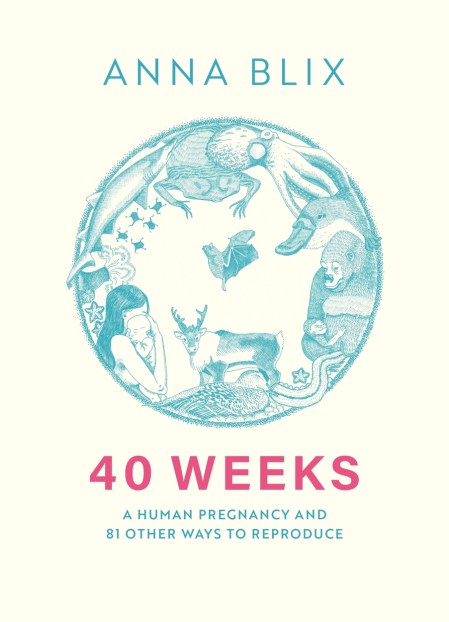It takes 40 weeks to grow a human baby.
And the relationship between a foetus and a pregnant woman is like a little that of a parasite and its host. One takes and takes, while the other continues to give, risking their health in the process.
Is there a better way?
The Komodo dragon can reproduce via pathogenesis – fertilising its own eggs, so no male is needed.
The Surinam toad harbours live babies in craters under its skin – until they’re ready to burst out into the world.
And the hyena . . . Well, best not mention the hyena . . .
Anna Blix takes the reader on a fascinating journey through her own pregnancy, introducing us in each of the 40 weeks to other creatures who have just delivered their next generation into the world.
This fun, informative and personable book provides evolutionary comfort throughout the long haul of pregnancy, and an explanation as to how we ended up here: as the smartest species with a tiresome, but perhaps not so bad way to reproduce. It could always be worse. Just ask the hyena.
Translated from the Norwegian by Nicola Smalley
And the relationship between a foetus and a pregnant woman is like a little that of a parasite and its host. One takes and takes, while the other continues to give, risking their health in the process.
Is there a better way?
The Komodo dragon can reproduce via pathogenesis – fertilising its own eggs, so no male is needed.
The Surinam toad harbours live babies in craters under its skin – until they’re ready to burst out into the world.
And the hyena . . . Well, best not mention the hyena . . .
Anna Blix takes the reader on a fascinating journey through her own pregnancy, introducing us in each of the 40 weeks to other creatures who have just delivered their next generation into the world.
This fun, informative and personable book provides evolutionary comfort throughout the long haul of pregnancy, and an explanation as to how we ended up here: as the smartest species with a tiresome, but perhaps not so bad way to reproduce. It could always be worse. Just ask the hyena.
Translated from the Norwegian by Nicola Smalley
Newsletter Signup
By clicking ‘Sign Up,’ I acknowledge that I have read and agree to Hachette Book Group’s Privacy Policy and Terms of Use
Reviews
A winner. I doubt I'll have the pleasure of reading anything better this year
Highly entertaining and educational . . . A joy to read . . . Blix is a master at making complex science understandable to regular people
There is no better literature than great non-fiction . . . The most amazing stories about mating, pregnancy, gender and sexuality
A compulsively interesting and original treatise, combining deeply personal testimony with scientific exactness. Blix takes us on a clear-eyed journey through some intriguing territory; an intellectual and literary delight!
